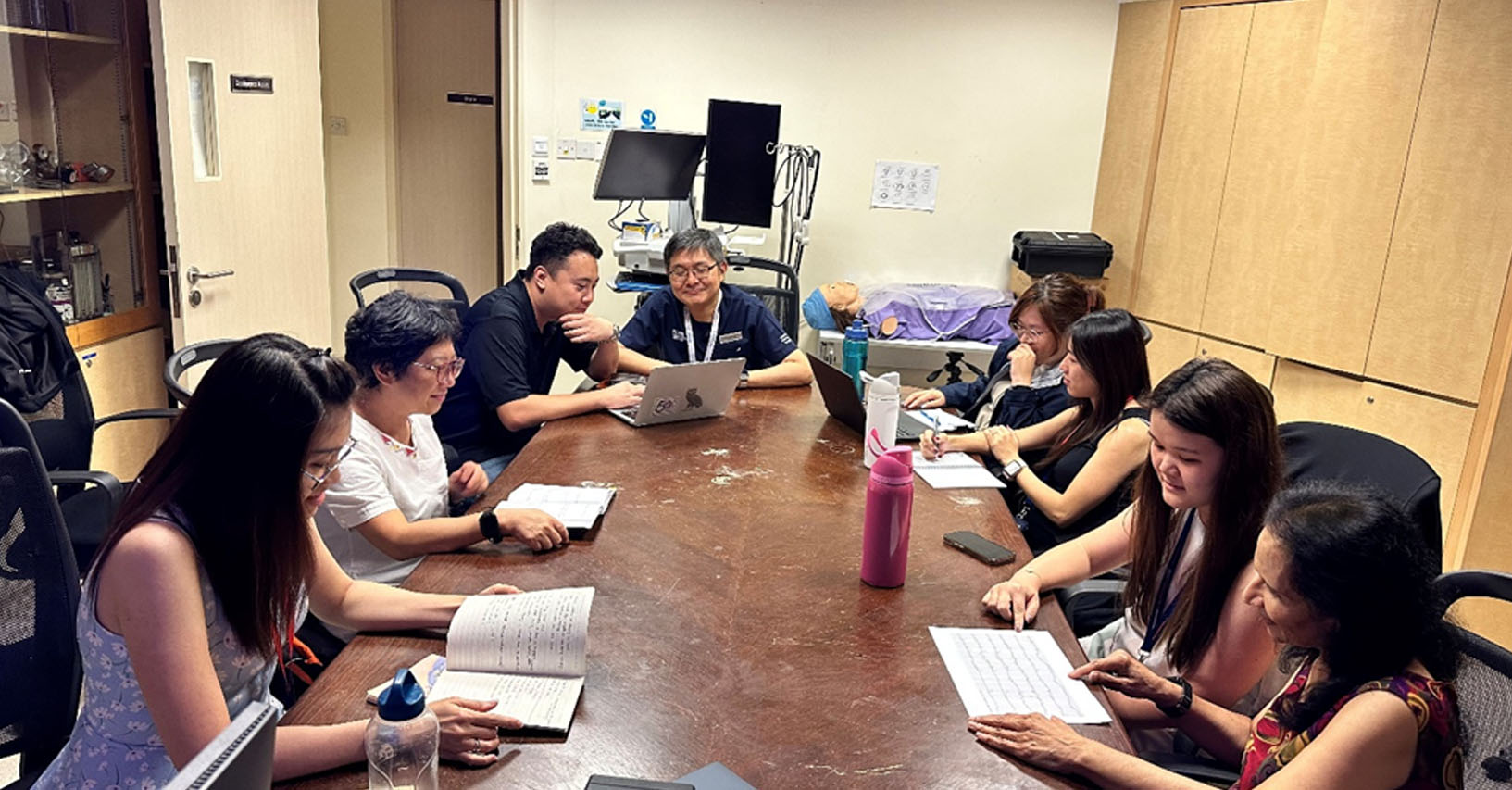Our Research
The Research group of the Department of Anaesthesia at the National University of Singapore is headed by Adjunct Associate Professor Will Loh. Other vital members of the research group include Professor Lee Tat Leang, Associate Professor Ti Lian Kah, Associate Professor Eugene Liu and Dr Sim Ming Ann.
Our research focus includes:
Advancing Perioperative Management for Asian Populations: A Personalised Approach
This groundbreaking research program, spearheaded by A/Prof Ti Lian Kah, tackles a critical challenge in contemporary medicine: optimizing surgical outcomes for patients. Major surgery, while often necessary, can be a significant source of stress and carries inherent risks. While full recovery is the desired outcome, complications – both minor and major – can have lasting consequences, impacting patients' well-being and healthcare systems.
Our research unveils a crucial fact: Asian patients exhibit distinct patterns of complications compared to their Western counterparts. This differentiation likely stems from a unique confluence of factors, including a higher prevalence of co-morbidities like diabetes and potential genetic variations. Consequently, relying solely on clinical pathways designed for Caucasian populations may not be the optimal approach for Asian patients.
This research program ushers in a new era of personalised surgical care. We embark on a multi-pronged mission to:
- Unravel the underlying mechanisms: By delving into the biological and genetic factors at play, we will illuminate the specific pathways influencing these outcomes in Asian populations.
- Examine surgery’s impact on ageing and cognition: Certain surgeries can improve health and potentially slow down aspects of ageing. For example, joint replacement surgery can restore mobility, reducing the strain on the body and allowing for a more active lifestyle. Cardiovascular surgery can address heart issues, improving circulation and potentially reducing the risk of age-related complications. Other proinflammatory states induced by surgery can alter ageing. Certain anaesthesia drugs affect cognition is different ways after surgery. We will explore such factors in our mission to improve perioperative outcomes.
- Forge Asian-centric clinical pathways: Leveraging our findings, we will architect innovative clinical pathways specifically tailored to the needs of Asian patients. These pathways will place a strong emphasis on identifying and mitigating modifiable risk factors, paving the way for a smoother surgical journey and improved patient recovery.
This ambitious program has the potential to revolutionize surgical and anaesthesia care for millions of Asians. By fostering a deeper understanding of patient-specific risk factors and crafting personalized treatment plans, we aim to significantly reduce post-operative complications, enhance patient well-being, and optimize healthcare resource allocation. This research program stands at the forefront of advancing surgical excellence for Asian populations, ushering in a future of improved outcomes and a brighter chapter in patient care.
Advancing the Frontiers of Critical Care
Under the leadership of A/Prof Will Loh, our Surgical Intensive Care research program is dedicated to pioneering advancements in the management of critically ill surgical patients.
Our research portfolio encompasses a spectrum of initiatives designed to examine and optimise patient outcomes:
- Sepsis Biomarker Development: We are at the forefront of developing novel biomarkers for the early detection of sepsis, a potentially life-threatening condition. This research holds the promise of significantly improving patient survival rates through timely intervention.
- Predictive Analytics for Patient Deterioration: Utilizing advanced statistical modelling and explainable artificial intelligence, we are developing robust predictive models that can identify patients at increased risk for post-surgical complications. This allows for proactive intervention and improved patient management strategies.
- Traumatic Brain Injury Management: Our research delves into innovative strategies for mitigating the deleterious effects of brain injury following trauma. This includes the investigation of novel neuroprotective agents and monitoring techniques.
- Optimising Massive Blood Transfusion Practices: Recognizing the inherent risks associated with massive blood transfusions, our research program focuses on optimizing transfusion practices to ensure maximum patient safety and efficacy. We are also dedicated to a comprehensive understanding of the safety and efficacy profiles of various coagulation products employed in surgical settings. This research aims to establish evidence-based guidelines for their optimal use.
This comprehensive research program represents our unwavering commitment to pushing the boundaries of critical care in surgical patients. It is through these endeavours that we strive to significantly improve patient outcomes and revolutionise the landscape of surgical critical care.








